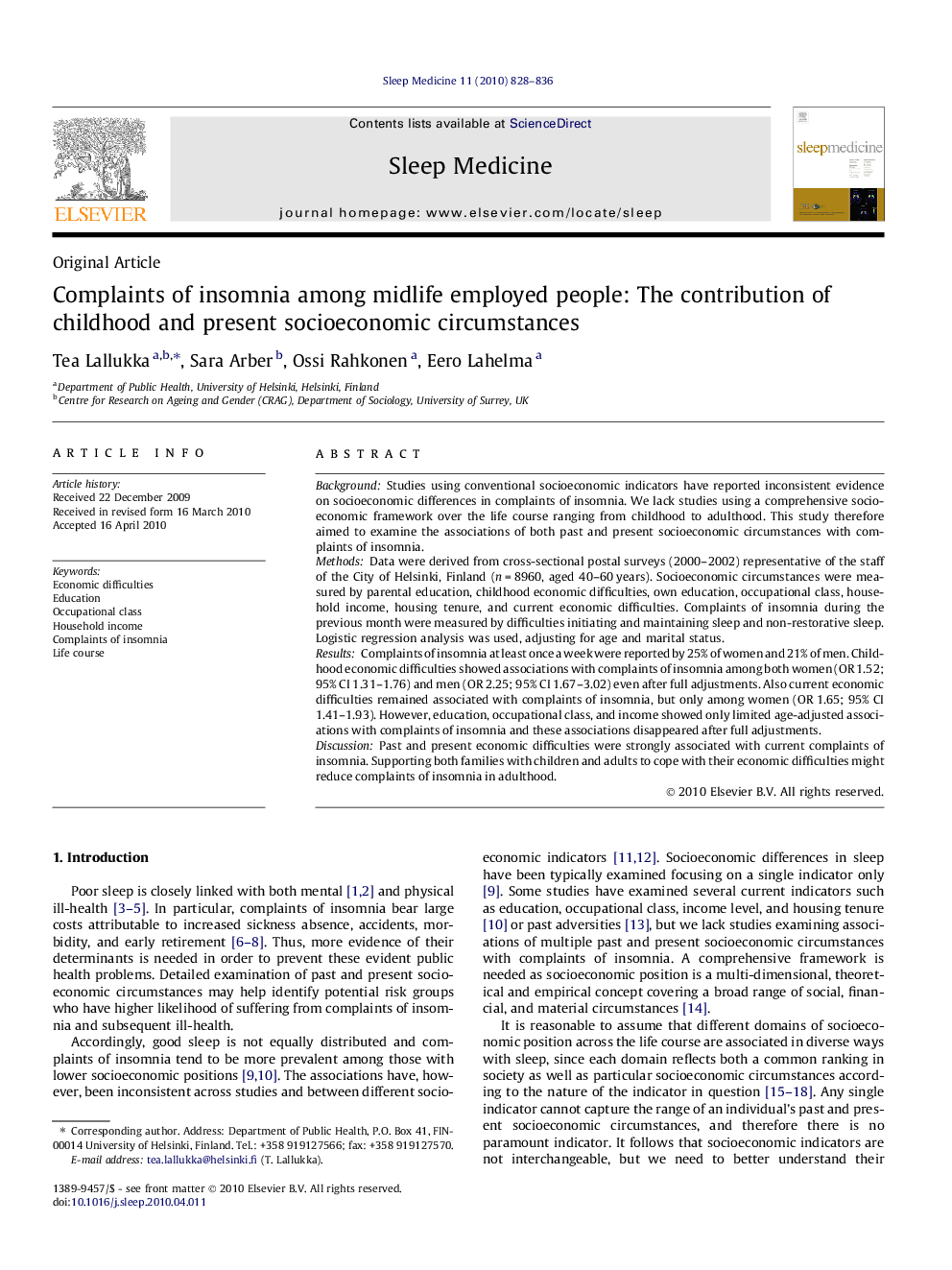| Article ID | Journal | Published Year | Pages | File Type |
|---|---|---|---|---|
| 3177208 | Sleep Medicine | 2010 | 9 Pages |
BackgroundStudies using conventional socioeconomic indicators have reported inconsistent evidence on socioeconomic differences in complaints of insomnia. We lack studies using a comprehensive socioeconomic framework over the life course ranging from childhood to adulthood. This study therefore aimed to examine the associations of both past and present socioeconomic circumstances with complaints of insomnia.MethodsData were derived from cross-sectional postal surveys (2000–2002) representative of the staff of the City of Helsinki, Finland (n = 8960, aged 40–60 years). Socioeconomic circumstances were measured by parental education, childhood economic difficulties, own education, occupational class, household income, housing tenure, and current economic difficulties. Complaints of insomnia during the previous month were measured by difficulties initiating and maintaining sleep and non-restorative sleep. Logistic regression analysis was used, adjusting for age and marital status.ResultsComplaints of insomnia at least once a week were reported by 25% of women and 21% of men. Childhood economic difficulties showed associations with complaints of insomnia among both women (OR 1.52; 95% CI 1.31–1.76) and men (OR 2.25; 95% CI 1.67–3.02) even after full adjustments. Also current economic difficulties remained associated with complaints of insomnia, but only among women (OR 1.65; 95% CI 1.41–1.93). However, education, occupational class, and income showed only limited age-adjusted associations with complaints of insomnia and these associations disappeared after full adjustments.DiscussionPast and present economic difficulties were strongly associated with current complaints of insomnia. Supporting both families with children and adults to cope with their economic difficulties might reduce complaints of insomnia in adulthood.
